Disclaimer: This profile includes graphic themes that may be considered disturbing to some readers. Reader discretion is advised.
When Hannah Kulishova joined the U.S. Postal Service (USPS) in 2021, she thought she had found the perfect fit: steady work, miles of walking, and a chance to serve her community.
But last August, that sense of normalcy was shattered when she realized her employer had placed her, and countless other women, in harm’s way.
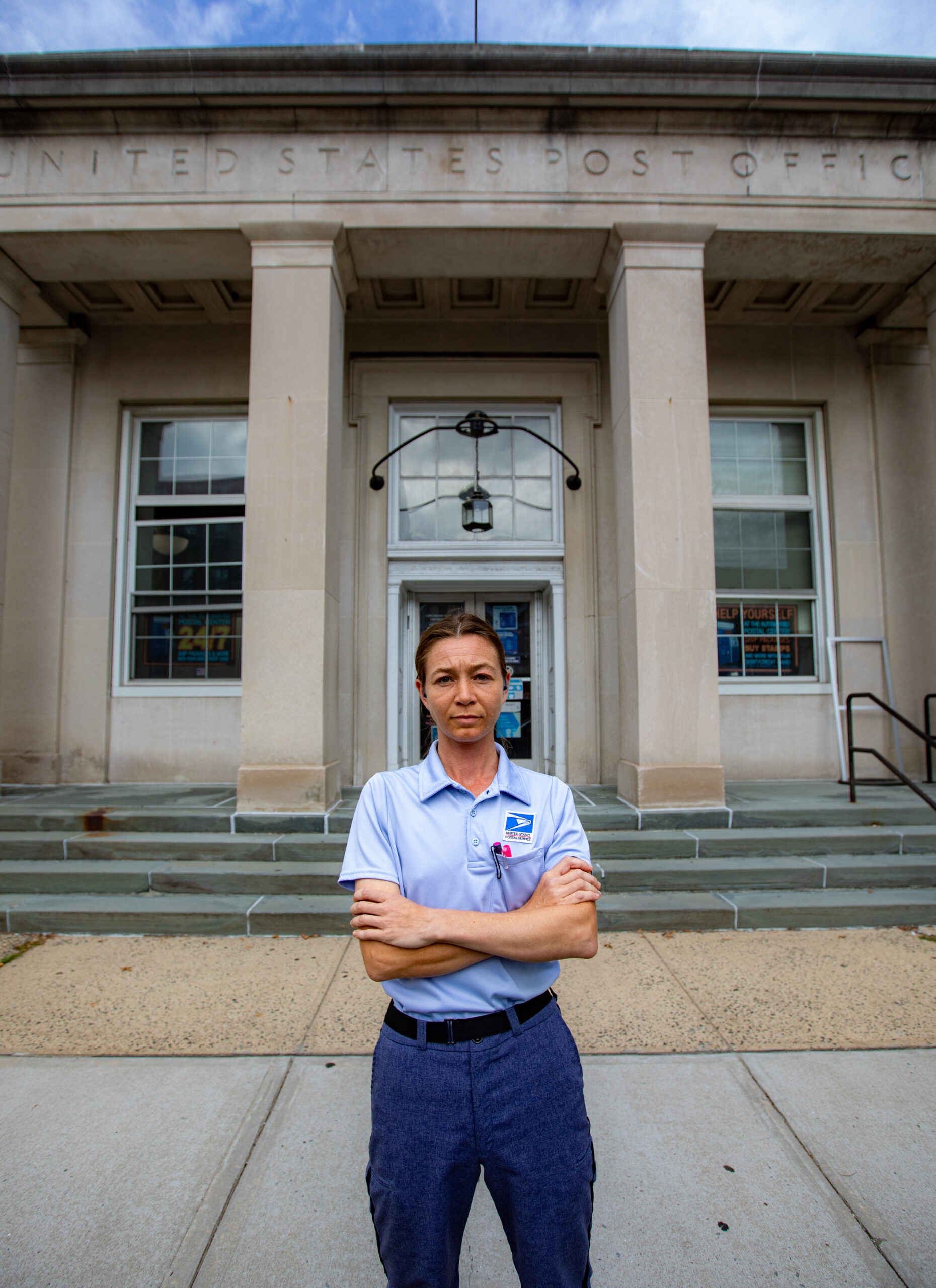
This realization began after a male USPS employee identifying as a transgender woman was given free rein of the women’s restrooms in the Larchmont, New York, post office, where Kulishova worked. Kulishova had worked with the man, who goes by the name Ashley Phillips, for a few months before she first encountered him in the women’s restroom.
“He came into the bathroom while I was still washing my hands,” Kulishova recalled. “I immediately felt afraid, which is really strange. That doesn’t normally happen, and I couldn’t explain why.”
Kulishova said she went to her postmaster to raise concerns about a biological male using the women’s restroom. After all, since the USPS is a federal agency, Kulishova thought it had to adhere to the recent Executive Order from President Donald Trump that women and men must be guaranteed single-sex spaces.
The postmaster allegedly dismissed her concerns, and when Kulishova asked for a reasonable accommodation to use the postmaster’s single stall, she said she was denied the request because it would then have to be offered to any other employee.
As a result, for the past year, Kulishova has been forced to walk to the CVS next door to use the restroom and change out of her uniform. While the Larchmont office offers a women’s locker room next to the bathroom, Kulishova said she didn’t feel comfortable changing after her long shifts delivering mail, knowing a man could be in the same room.


When she started to express her discomfort to closer colleagues at work, Kulishova said they’d vent with her and tell her how unfair the situation was, but they never said anything to leadership on her behalf.
“Everybody was extra polite around Ashley, and I would hear my boss and other people saying stuff like, ‘Oh, we’ve got to be careful what we say,’” Kulishova recalled, adding that she “one thousand percent” felt like her feelings were being put below his, and that she was “singled out.”
But Kulishova’s instincts turned out to be right. Months later, when she began looking into Ashley Phillips’ background, she discovered his name on the sex offender registry. Kulishova said she was horrified.
What she found was worse than she anticipated: a Category 3 listing, meaning “high risk, likely to reoffend,” with pornography as an integral part of his crimes and multiple children as his victims.
“It made me question––was I picking up on that when I felt the fear the first time?” she reflected.
Anthony Phillips (later changed to Ashley Phillips) was convicted in 2004 with a 180-month state prison sentence after pleading guilty to sexual exploitation of a minor. An FBI investigation had tied him to a child pornography website, and upon searches of his and a family’s home, evidence showed he had a sexual relationship with an 11-year-old girl, “Jane Doe.”
But at minimum five children were directly victimized by Phillips, according to court records: the Jane Doe, a neighbor boy aged 6 or 7, an unnamed girl aged 7 or 8, his half-sister aged 9, and a boy from Brooklyn aged 13. Phillips had had an extensive possession and production of child pornography, totaling around 103,000 images and short movies involving children, gifted minors inappropriate gifts like vibrators, and even schemed to introduce his victims to one another for sexual activity, the records reveal.
Understandably, Kulishova raised concerns with her superior, noting it was shocking that a convicted sex offender with a history of pornography and a likelihood to reoffend had unequivocal access to the women’s restroom and locker room.
But Kulishova said her superior was allegedly dismissive of Kulishova’s safety concerns, laughing at Kulishova’s expense when Kulishova recounted the story of her initial restroom encounter with Phillips. and later texting her an unofficial line claiming USPS hires sex offenders––a statement Kulishova could only describe as “not a legitimate policy from anywhere on the USPS website. Worse, the postmaster even allegedly told her in person that Kulishova, an adult, had nothing to worry about––because Phillips likes children.
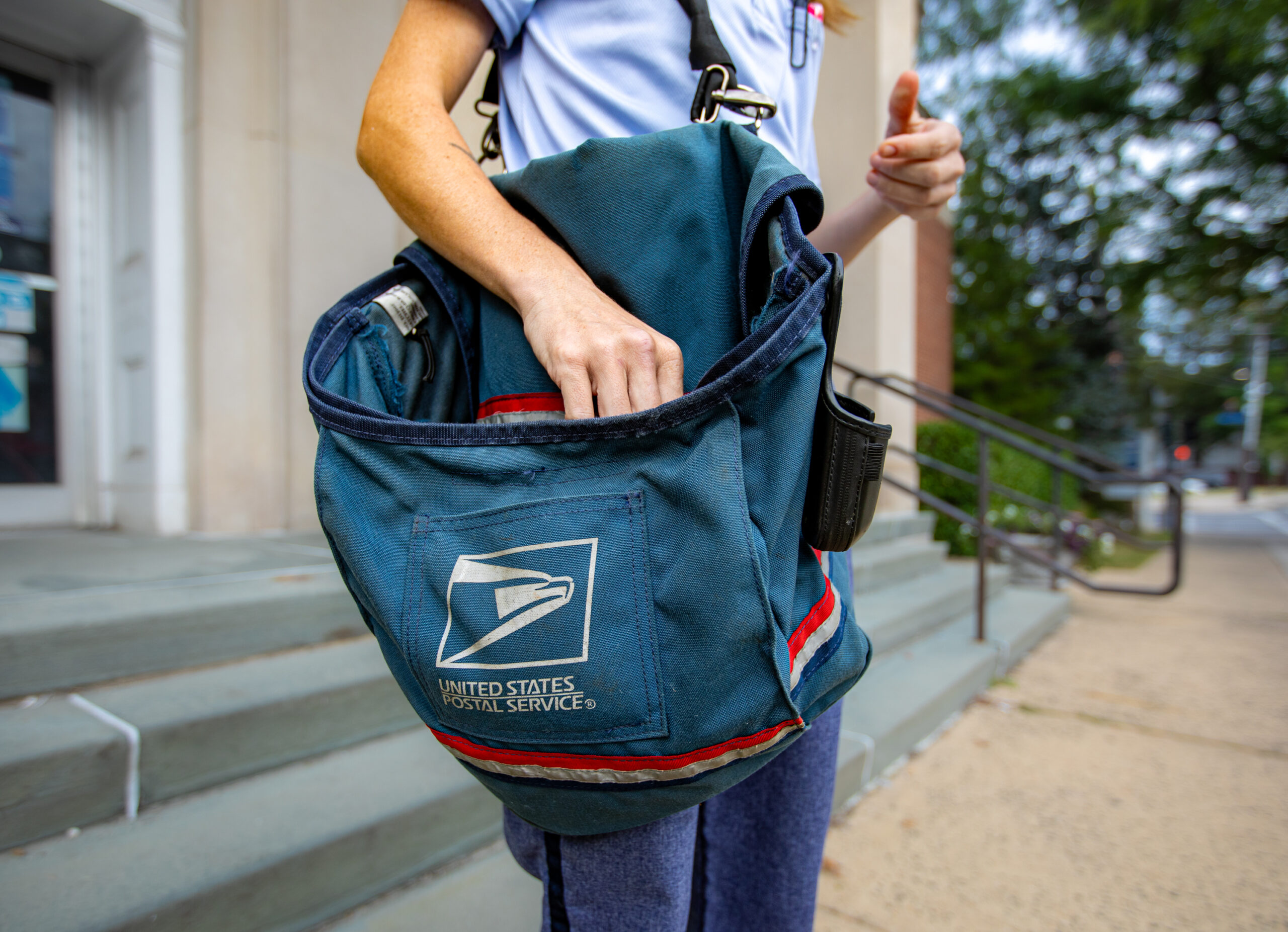
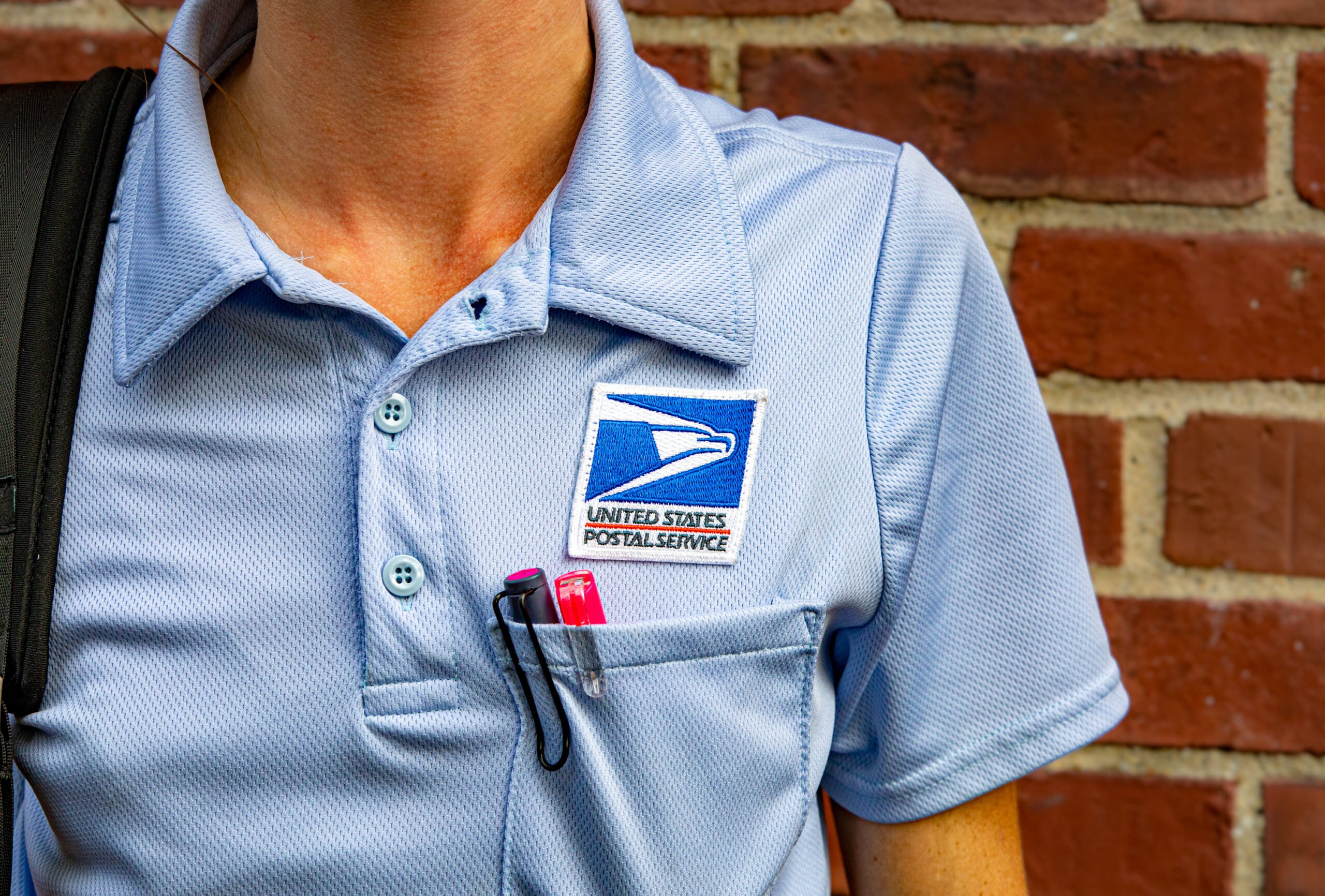
Kulishova was shocked by this response and told the postmaster she believed a predator would prey on anybody who is vulnerable, And in the USPS women’s restroom or locker room, the most vulnerable person is the female employee.
The danger didn’t end at the Larchmont office restroom. As a letter carrier at the time, the convicted sex offender was assigned routes that included residential neighborhoods and even elementary schools. This was particularly worrisome to Kulishova, who thought about all the children in those neighborhoods and schools along Phillips’ route.
But then, Phillips was suddenly made a supervisor.
“That made me very angry and upset because I don’t believe he should be in a position with access to people’s records,” Kulishova said. “I’m not comfortable with him having my address.”
Indeed, instead of protecting women, USPS seemingly rewarded Phillips.
“It’s disturbing that everybody has sort of been like, ‘Hush hush, just don’t talk about it. We prefer it wasn’t happening… and we’re also not going to do anything about it,’” Kulishova said.
She added that her attempts to rally other women were equally disheartening. Even though she warned other female employees, Kulishova said everyone kept using the bathroom, leading her to feel “really, really small,” question, and doubt herself.
IW Features reached out to USPS for comment, whose official response is that “the Postal Service does not comment on employee matters.”
Recently, Kulishova learned that Phillips would be transferred to another office, which meant that he had a fresh slate with new coworkers who likely wouldn’t be aware of his sex offender status.
That’s why Kulishova didn’t stop at raising her concerns internally. She also filed complaints with the Occupational Safety and Health Administration (OSHA), the U.S. Equal Employment Opportunity Commission (EEOC), and even reached out to state officials.
Unfortunately, she said she was met with similar silence or deflection each time.
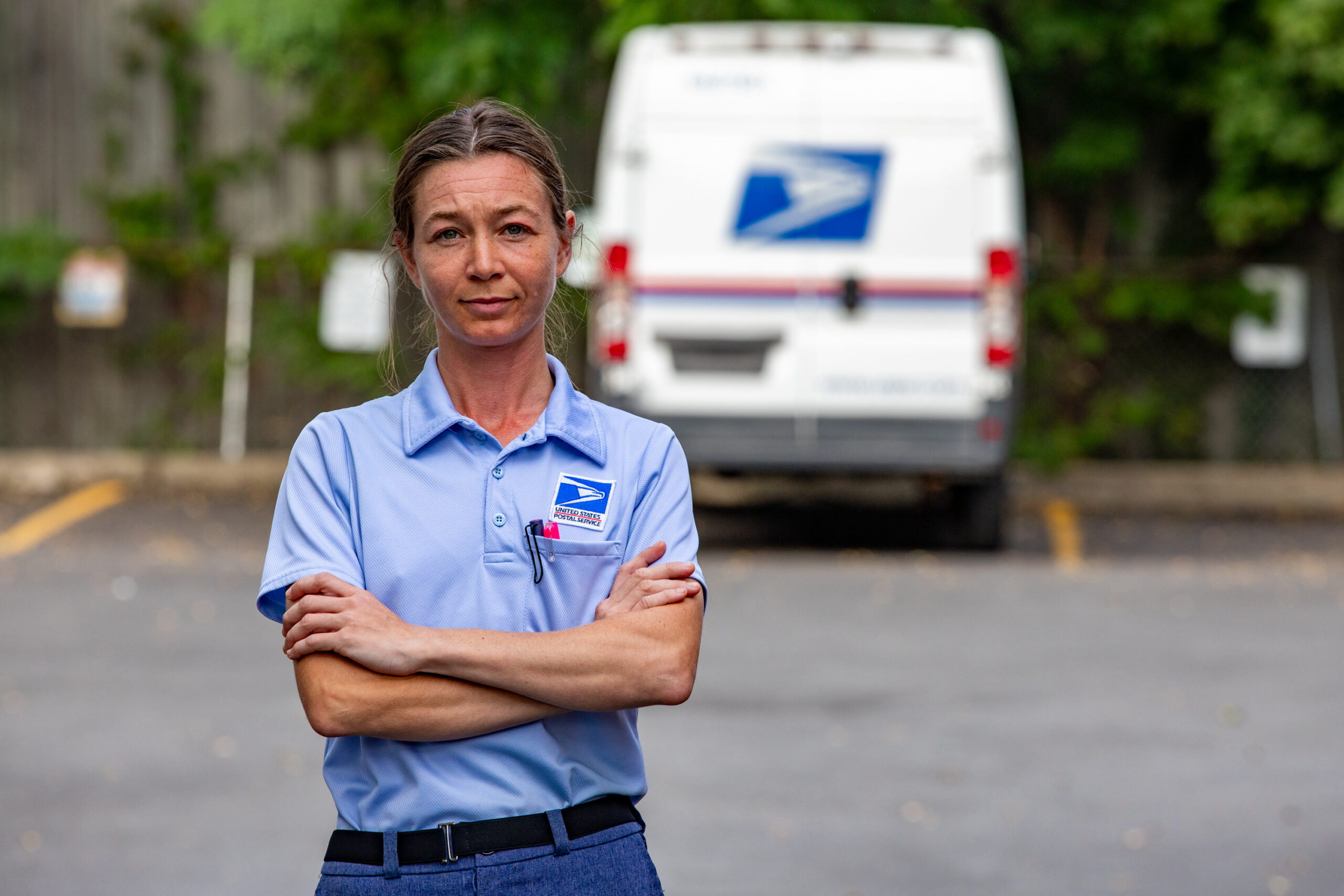
One call from OSHA, she recalled, made it clear how little the system was willing to do.
On a call with a representative from OSHA, Kulishova said she informed the agency that a man had been using the women’s restroom at her facility. She clarified that the man is a registered sex offender, and that she was concerned not only for her safety but for the safety of women in the USPS in general. Kulishova pointed out that OSHA’s own guidelines posted in the building require “toilet facilities separated for each sex.” but the only solution the representative allegedly offered up was to “make sure the labels on the doors are correct.” Indeed, he apparently reduced Kulishova’s very real safety concerns to a technical compliance issue, where the only solution was to suggest the USPS re-label their bathrooms as gender neutral, rather than the doors continue to be labeled as “Men” and “Women.”
And this gut punch came after OSHA had previously told her the situation surrounding Phillips’ employment was out of their jurisdiction because USPS hires from the general public.
Meanwhile, New York state law has further complicated matters.
“New York literally says people can use whichever bathroom they feel like,” Kulishova explained. “Obviously, it’s in conflict with federal law as well as common sense. USPS is a federal agency––they’re bound to federal law. Once you mention that, that should solve everything.”
But it doesn’t, she explained. In practice, New York’s identity policy has been allowed to override federal regulations, fundamentally erasing the only federal safeguard women like Kulishova could point to.
“Women are valuable. We deserve the right to feel safe at work, and that means privacy from our male coworkers when we use the bathroom,” Kulishova said. “Part of the reason I’m not comfortable is because I know my value as a woman.”
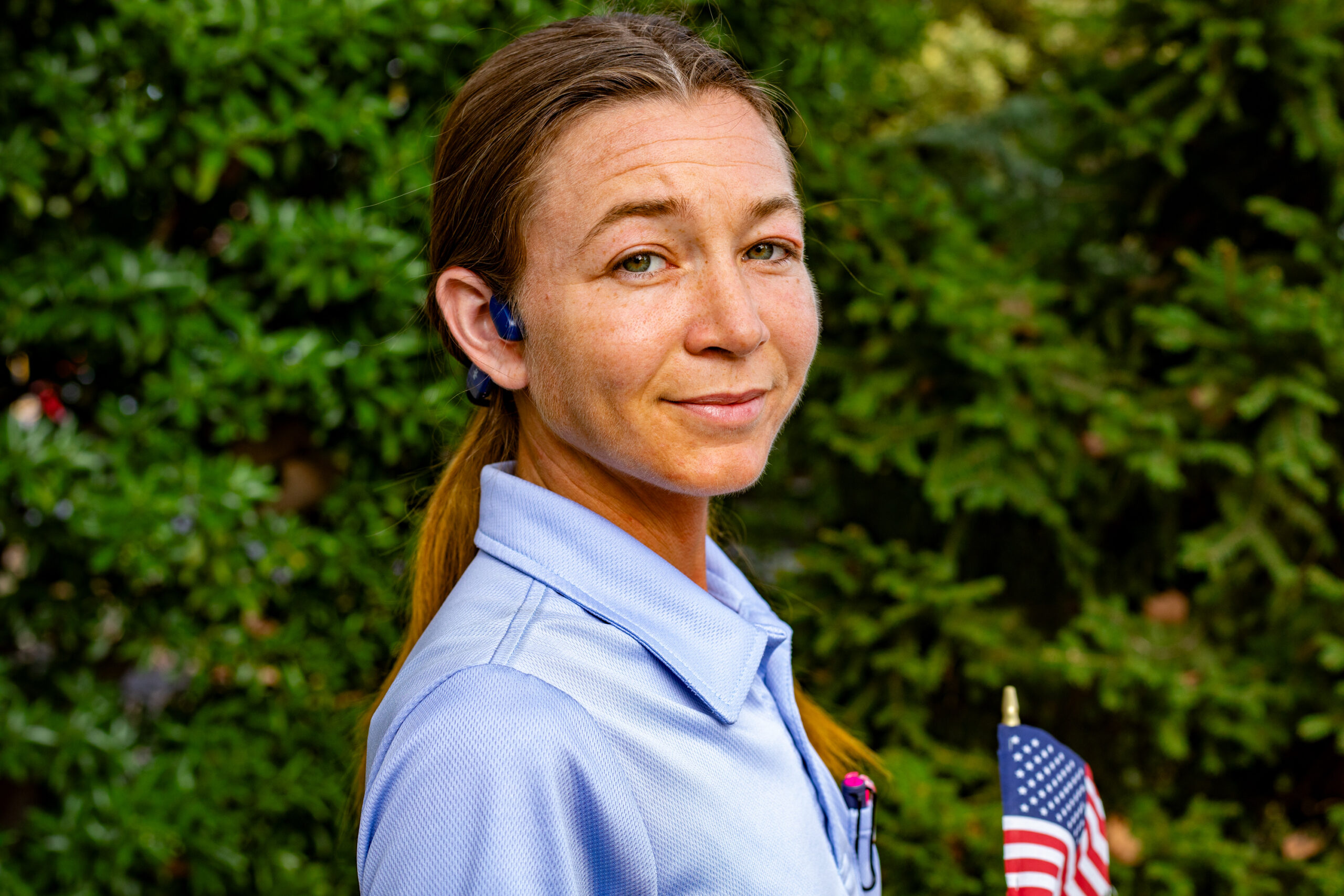
Despite everything, Kulishova still loves her job. She doesn’t want to see the USPS embroiled in a scandal; she just wants it to do the right thing. This includes vetting for sexual predators and not allowing them to deliver mail to elementary schools or residential buildings.
“I was fingerprinted when I applied for the job, so I thought that they would be naturally filtered out,” she added. “I had no idea I could be working with registered sex offenders or that they could be my boss.”
Ultimately, Kulishova hopes to raise awareness about this situation in the chance that other men identifying as transgender women are similarly being given access to the USPS’s intimate, previously single-sex spaces.
“If we as a society, or if the post office as a company, can’t say what’s wrong or draw a line somewhere and say, ‘This is not OK,’ then that’s not safe. What’s next?” Kulishova asked. “Maybe if enough women add their voices, eventually somebody will hear us.”
There can be change, she said, but first things first: “We need to start telling the truth.”










